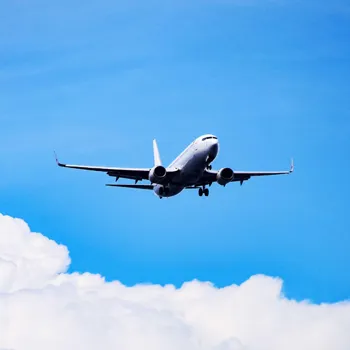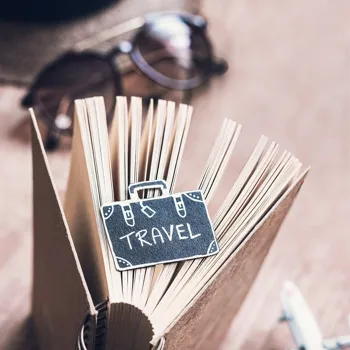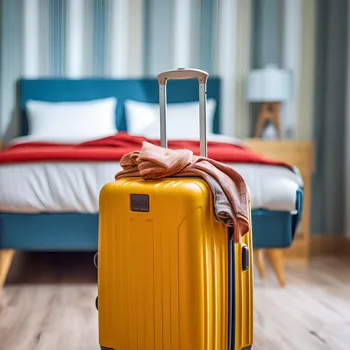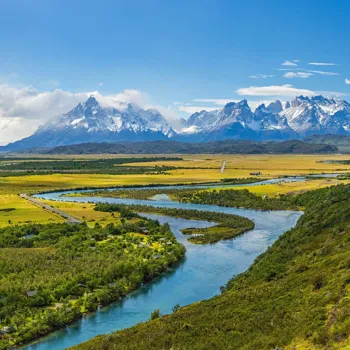Embark on your first international adventure with confidence! Dive into 10 essential travel tips for a smooth journey. Read on for expert advice
So, you're finally taking the plunge! Your passport is ready,
your bags are (almost) packed, and your Instagram is practically begging for those envy-inducing travel pics. Going abroad for the first time is a big deal, a proper adventure!

But before you jet off to explore new lands, it's good to brush up on some essential tips to make your journey smooth and memorable (for all the right reasons!). No need to be a 'ghabru' (worried) – we've got you covered. Here are ten tips that’ll make you travel like a seasoned pro, even if it’s your maiden voyage:
Visa Matters & Passport Power:
This is number one for a reason! Your visa and passport are your golden tickets to international exploration. Check visa requirements way in advance. Some countries offer visa-on-arrival for Indian citizens, while others need you to apply beforehand.
Don't wait till the last minute, or you might be saying 'Tata' to your trip before it even begins! Make sure your passport is valid for at least six months beyond your intended stay.
Also, keep a digital copy of your passport, visa (if applicable), and other important documents stored securely in your email or cloud storage. It's a lifesaver if the originals get lost or stolen. Consider registering with the Indian embassy or consulate in the country you're visiting.
This can be super helpful in case of emergencies. Lastly, always carry some extra passport-sized photographs, you never know when you might need them.
Money Talks: Forex, Cards & Cash:
Managing your money wisely is crucial for a hassle-free trip. Getting your currency exchanged may get you thinking. Start by researching the exchange rates beforehand so you can easily get the best deal. Consider using a mix of options – forex cards and credit/debit cards.

Forex cards are convenient and preloaded with the local currency, protecting you from fluctuating exchange rates. Credit/debit cards are great for larger purchases, but be mindful of international transaction fees. Always inform your bank about your travel plans to avoid your cards being blocked.
It's wise to carry some cash in the local currency for smaller expenses, like transportation or street food. But don't carry too much cash at once; it's best to keep most of your money safe in your bank account or forex card and withdraw as needed.
Always stay aware of your surroundings when withdrawing cash from ATMs.
Pack Smart, Travel Light:
Resist the urge to pack your entire wardrobe! Over-packing leads to extra baggage fees and a lot of unnecessary lugging around. Create a packing list beforehand and stick to it. Choose versatile clothing items that can be mixed and matched.

Roll your clothes instead of folding them; it saves space and reduces wrinkles. Make use of packing cubes to organize your belongings efficiently. And remember, you can always buy things you forget at your destination!
Don't forget basic toiletries and any necessary medications (with prescriptions). Also, pack an adapter for your electronic devices, as different countries have different plug types. Before you pack, check the weather forecast for your destination and pack clothes accordingly.
Wearing comfortable shoes is very important, especially if you're planning on doing a lot of walking.
Learn Basic Local Phrases:
You don’t need to be fluent in the local language, but learning a few basic phrases can go a long way in making your trip more enjoyable. Knowing how to say "Hello," "Thank you," "Please," and "Excuse me" shows respect and can help you connect with locals.

Try downloading a language learning app or carrying a phrasebook. Even attempting to speak the local language is often appreciated, and it can open doors to unique experiences. Don't be afraid to make mistakes; people will usually be understanding and happy to help.
If you're unsure how to pronounce a word, try using gestures or pointing at pictures. Be prepared to use these words to communicate with the local people since this will give you better insights. And remember, a smile is a universal language!
Stay Connected: SIM Card & Wi-Fi:
Staying connected is essential for navigation, communication, and sharing those stunning travel pics. Before you travel for foreign countries, research about their sim card. You can purchase a local SIM card immediately after arriving or you can pre activated international roaming.
This will usually give you better data rates when you are in travelling. Use the public wifi carefully, ensure that it is secure to be able to protect your personal information.
In planning for this aspect, do keep in mind that you might need internet to be able to access maps or other travel related services so always have ways to stay in touch.
Health & Safety First:
Health and safety should be your top priority when travelling abroad. Visit your doctor well in advance to discuss any necessary vaccinations or medications. Make sure you have comprehensive travel insurance that covers medical expenses, trip cancellations, and lost luggage.

Pack a basic first-aid kit with essentials like bandages, antiseptic wipes, pain relievers, and any personal medications. Be aware of your surroundings and take precautions against petty theft. Avoid walking alone in dark or unfamiliar areas, and keep your valuables secure.
Be mindful of local customs and laws, and respect the local culture. Drink bottled water and avoid eating food from places that look unsanitary. Always keep your family or friends updated on your whereabouts.
Embrace Local Culture (but be respectful!):
One of the best parts of travelling is experiencing new cultures. Be open to trying new things, whether it's trying exotic foods, learning about local customs, or visiting historical sites. Do your research beforehand to understand the local etiquette and avoid any cultural faux pas.
Dress modestly when visiting religious sites, and be mindful of local customs regarding photography. Be respectful of local traditions and beliefs, even if they are different from your own. Engage with locals and ask them about their lives and culture.
Remember, you are a guest in their country, so always be polite and respectful. Be open to learn and respect different cultures rather than being judgemental.
Plan (Loosely) & Be Flexible:
Having a rough itinerary is helpful, but don't over-schedule your trip. Leave room for spontaneity and unexpected adventures. Be prepared to adjust your plans if something comes up, whether it's a delayed flight, a closed museum, or a sudden change in weather.

Embrace the unexpected and see where it takes you. Talk to locals for recommendations on hidden gems and off-the-beaten-path experiences. Remember, some of the best travel moments are the ones that weren't planned. Be open to trying new things and stepping outside your comfort zone.
But most of all, don’t stress too much about sticking to an itinerary. Enjoy your travel experience!
Transportation Tactics:
Getting around a new city can be daunting, but with a little planning, it can be a breeze. Research transportation options beforehand, whether it's public transport, taxis, or ride-sharing services. Download relevant apps for navigation and transportation.
Learn how to read the local transportation maps and schedules. If taking a taxi, make sure the driver uses a meter or negotiate the fare beforehand. Be aware of local traffic laws and customs. Consider purchasing a travel card for unlimited access to public transportation.
Always be cautious when using ride-sharing services, and share your location with a friend or family member. But mostly just enjoy the journey from on point to another.
Keep a Travel Journal (Memories Matter!):
In today's digital age we tend to take pictures to reminisce about our travels, but keeping a travel journal adds a personal touch. Write down your thoughts, feelings, and experiences each day. Record the names of people you meet, the places you visit, and the foods you try.
Describe the sights, sounds, and smells of your surroundings. A travel journal is a great way to preserve your memories and reflect on your journey. It's also a fun way to look back on your adventures in the years to come. So grab a notebook and pen, and start documenting your travel stories!
Photos capture images and the journal captures the experience.
So there you have it – ten essential tips to help you navigate your first international trip. Remember to be prepared, be open-minded, and most importantly, have fun! Safe travels, and we hope these tips help you enjoy your trip.
Don't let anything stop you from taking the opportunity to explore places you have never been to. "Happy Journey!"
AI Generated Content. Glance/InMobi shall have no liability for the content











